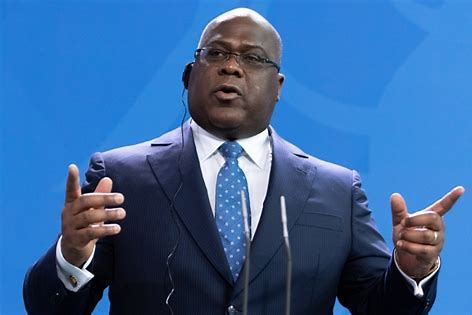
It’s not only the DRC government that has been critical of the East African regional force. Many community members have expressed their anger at the force’s lack of effectiveness. In some cases, this has led to riots and outbreaks of violence against the force.
There is also an overall lack of trust in foreign forces, given the history of military and economic meddling by the DRC’s neighbours. The exploitation of the DRC’s natural resources by regional actors has been well documented. Further, some members of the East African Community Regional Force, including Burundi and Uganda, have illegally occupied areas of DRC territory.
Frustrations are also high over continued insecurity following years of intervention, including nearly 25 years of UN peacekeeping in the country. Yet, violence continues to grow, with more than six million people currently displaced in the east.
The military presence of the East African force was intended to complement a political process that also involved the regional bloc’s leadership. However, this political process has stalled amid mounting tension between the DRC and Rwanda. Accusations of Rwanda’s support for M23 remain a crucial point of discord between the two countries. Rwanda officially denies these accusations.
While the East African Community has expressed its intention to remain engaged politically even after its troops withdraw, overcoming regional political tensions remains a major obstacle.
What prompted the exit from the DRC?
After just over a year, the DRC government decided not to renew the mandate of the East African Community Regional Force past its December 8, 2023 expiration. President Felix Tshisekedi has accused the force of not only being ineffective but even of colluding with rebels.
The more likely reason for the force’s exit, however, is Tshisekedi’s dissatisfaction with its unwillingness to use proactive force against M23. This posture would entail the force undertaking offensive operations to neutralise non-state groups in partnership with government forces.
Similar frustrations have been directed at the UN peacekeeping operation, which also begins its drawing down in December 2023. While most of the benchmarks identified for the UN mission’s withdrawal have not been met, the government has made it clear the mission is no longer welcome in the country. In the eyes of the government and many community members, if foreign forces cannot tamp down non-state armed groups, they should leave the country.
What comes next?
Although the East African force and UN peacekeepers will begin leaving the country this month, this is not the end of foreign forces in the DRC. The Southern African Development Community, which the DRC is a part of, has agreed to provide troops. While the exact timing of their deployment has not yet been specified, it may correspond with the East African force’s withdrawal to ensure continuity of presence.
Underpinning the southern African deployment is the DRC’s renewed hope that the force will provide more robust operations. Tshisekedi noted that this regional bloc had resolved to help the DRC “annihilate” its enemies. The country’s Deputy Prime Minister and Minister for Foreign Affairs Christophe Lutundula similarly stated that the force would support the Congolese army in fighting and eradicating the M23 and other armed groups.
Even if Southern African forces are willing to engage offensively, the chances of them facilitating longer term peace in the country are negligible.
This is because such operations rest on the DRC government’s flawed assumption that it can achieve peace through sheer military force. The lack of sustained political engagement by the main parties to the conflict has undermined numerous attempts at peace.
The DRC is not the only accountable party in this situation; Rwanda carries its fair share of responsibility. But unless the government can facilitate a viable political process, more boots on the ground – whether international, regional or bilateral – are unlikely to bring the peace that the Congolese people badly need.
- A Tell report / By Jenna Russo, Researcher and lecturer, City University of New York











